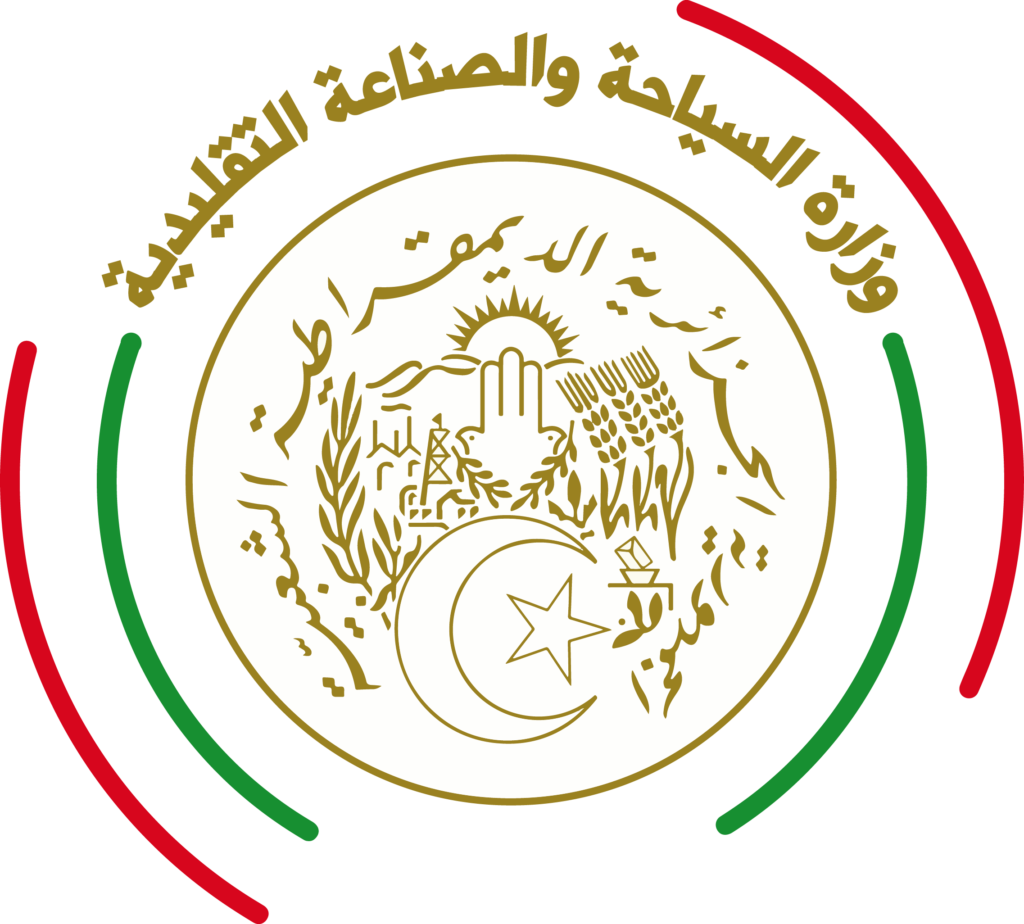The name “Abdelkader” is sometimes transliterated “‘Abd al-Qadir’, ‘Abd al-Kader’, ‘Abdul Kader’ or other variants. He is often referred to simply as Emir Abdelkader (since El Djezairi means “Algerian”). “Ibn Muhieddine” is a surname which means “son of Muhieddine”, and “al-Hasani” is an honorific surname indicating his descendants of Hasan ibn Ali, the grandson of Muhammad. It is often given, also the titles of emir “prince” and shaykh “sheikh”.
Abdelkader was born near the city of Mascara in 1808, from a family of religious aristocracy. His father, Muhieddine (or “Muhyi al-Din”) al-Hasani, was a muqaddam in a religious institution affiliated with the Sufi Brotherhood Qadiriyya and claimed a descent from Muhammad, via Idrisides. Abdelkader was therefore a sheriff, and had the right to add to his name the honorific name of al-Hasani (“descendant of al-Hasan”).
He grew up in the zawiya of his father who, at the beginning of the nineteenth century, had become the center of a thriving community on the banks of the river Oued al-Hammam. Like other students, he received a traditional education in theology, jurisprudence and grammar; it was said that he could read and write at the age of five. Gifted student, Abdelkader managed to recite the Koran by heart at the age of 14, thus receiving the title of hafiz. A year later, he went to Oran to continue his studies. He was a good speaker and could excite his peers with poems and religious diatribes.
In 1825, he and his father went on pilgrimage to Mecca (hajj). There, he met Imam Chamil; both had a long discussion on different topics. He also visited Damascus and Baghdad, and visited the graves of notable Muslims, such as Ibn Arabi and Abd al Qadir al-Jilani, also known as El-Jilali in Algeria. This experience cemented his religious enthusiasm. On the way back to Algeria, he was impressed by the reforms led by Mehemet Ali in Egypt. He returned to his homeland a few months before the arrival of the French.
In 1830, Algeria was invaded by France; the French colonial rule over Algeria supplanted the domination of the Ottoman Empire and the Koulouglis. There was a lot of repressed reproach against the Ottomans when the French arrived, and because of many rebellions at the beginning of the nineteenth century, the Algerians could not at all oppose the French. When the French army arrived in Oran in January 1831, Abdelkader’s father was charged with carrying out a campaign of harassment. Muhieddin called for jihad, and his son and he were among those involved in the first attacks under the walls of the city.
It is at this moment that Abdelkader appears in the foreground. At a meeting of the western tribes in the fall of 1832, he was elected emir, or Commander of the Believers (following his father’s refusal to occupy this position, on the grounds that he was too old) . The post was confirmed five days later at the Grand Mosque of Mascara. In one year, thanks to a combination of punitive raids and cautious politics, Abdelkader had managed to unite the tribes of the region, and restore security – his area of influence now covered the entire province of Oran. French General Louis Alexis Desmichels, the local commander-in-chief, saw Abdelkader as the main representative of the region during the peace negotiations, and in 1834 he signed the Desmichels Truth, which almost completely surrendered control of the province of Oran to Abdelkader. . For the French, it was a way of establishing peace in the region while confining Abdelkader to the west; but his status as co-signer has also greatly contributed to raising it in the eyes of the Berbers and the French.
Using this treaty as a departure, he imposed his dominion over the Chelef, Miliana and Medea tribes. The French High Command, dissatisfied with what they now regarded as the unfavorable terms of the Treaty of Desmichels, recalled General Desmichels and replaced him by General Trezel, which provoked a resumption of hostilities. The tribal warriors of Abdelkader met the French forces in July 1834 during the Battle of Macta, where the French suffered an unexpected defeat. France reacted by intensifying its pacification campaign and, under new commanders, the French won several important meetings, including the Battle of Sikkak. But the political opinion in France became ambivalent towards Algeria, and when the French general Thomas Robert Bugeaud was deployed in the region in April 1837, he was “authorized to use all means to incite Abd el-Kader to make openings of peace. “. The result, after long negotiations, was the Treaty of Tafna, signed on May 30, 1837. This treaty gave even more control over the internal parts of Algeria to Abdelkader, but with the recognition of the right of France to imperial sovereignty. Abdelkader thus took control of all Oran and extended his influence to the neighboring province of Titteri, and beyond.
The period of peace that followed the Tafna treaty benefited both parties, and Emir Abdelkader took the opportunity to consolidate a new functional state, with a capital, in Tagdemt. He downplayed his political power, repeatedly refusing the title of Sultan and striving to focus on his spiritual authority. The state he created was largely theocratic, and most of the positions of authority were occupied by members of the religious aristocracy; even the main unit of money was called lemuhammadiyya, according to the prophet.
His first military action was to move south into the Sahara and at-Tijini. Then he moved east to the valley of Chelef and Titteri, but the Bey of Constantine, Hadj Ahmed, resisted him. In other cases, he demanded the punishment of the Kouloughlis of Zouatna for supporting the French. By the end of 1838, his reign extended east to Kabylia, and south to Biskra and the Moroccan border. He continued to fight in Tijini, and besieged his capital at Ain Madhi for six months, eventually destroying it.
Another aspect of Abdelkader that helped him run his fledgling country was his ability to find and use good talent regardless of his nationality. He employed Jews and Christians on the road to building his nation. One of them was Leon Roches. His approach to the army was to have a permanent troop of 2,000 men supported by local tribal volunteers. He has placed arsenals, warehouses and workshops in the towns of the interior, where he has stocked items for sale for arms purchases from England. Thanks to his frugal life (he lived in a tent), he taught his people the necessity of austerity and through education, he taught them nationalist pride.
Peace came to an end when the Duke of Orleans, unaware of the terms of the Tafna Treaty, led an expeditionary force crossing the iron gates. On October 15, 1839, Abdelkader attacked the French as they colonized the plains of Mitidja, and routed the invaders. In response, the French officially declare war on November 18, 1839. The fighting gets bogged down until General Thomas Robert Bugeaud returns to Algeria, this time as governor general, in February 1841. Abdelkader was initially encouraged to hear that Bugeaud, the promoter of the Treaty of Tafna, was returning; but this time, Bugeaud’s tactics were radically different. This time, his approach was that of annihilation, with the conquest of Algeria as a goal:
“I will enter your mountains; I will burn your villages and your crops; I will cut down your fruit trees.
– General Bugeaud, January 24, 1845. ”
Abdelkader was effective in practicing guerrilla warfare and for a decade until 1842 won many battles. He often signed tactical truces with the French, but they did not last. His power base was in the western part of Algeria, where he managed to unite the tribes against the French. He was known for his chivalry; on one occasion, he released his French captives simply because he did not have enough food to feed them. During this period, Abdelkader demonstrated political and military leadership and acted as a competent administrator and a persuasive speaker. His fervent faith in the doctrines of Islam was undisputed.
Until early 1842, the struggle was in his favor. however, the resistance was repressed by Marshal Bugeaud, because of Bugeaud’s adaptation to the guerrilla tactics used by Abdelkader. Abdelkader struck quickly and disappeared into the field with the light infantry; However, the French have increased their mobility. The French armies brutally repressed the native population and practiced a scorched earth policy in the countryside to force the inhabitants to starve to desert their leader. In 1841 his fortifications were almost destroyed, and he was forced to wander inside Oran. By 1842 he had lost control of Tlemcen and his lines of communication with Morocco were not effective. He managed to cross the border into Morocco for a reprieve, but the French defeated the Moroccans at the Battle of Isly. He left Morocco and was able to continue the fight against the French capturing Sidi Brahim at the Battle of Sidi Brahim.
Abdelkader was ultimately forced to surrender. His failure to gain the support of the eastern tribes, with the exception of the Berbers of western Kabylia, had contributed to the quelling of the rebellion, and a decree of Abd al-Rahman of Morocco, after the treaty of Tangiers had banished the emir from all his kingdom. On December 21, 1847, Abdelkader surrendered to General Louis de Lamoriciere in exchange for the promise that he would be allowed to go to Alexandria or Acre. He would have commented on his own surrender with the words, “And God undo what my hand has done” (though this is probably apocryphal). His request was accepted and, two days later, his surrender was made official to the French governor general of Algeria, Henry of Orleans, Duke of Aumale, to whom Abdelkader symbolically gave his workhorse. In the end, however, the French government refused to honor Lamoricière’s promise: Abdelkader was sent to France and, instead of being allowed to be driven to the East, was kept in captivity.


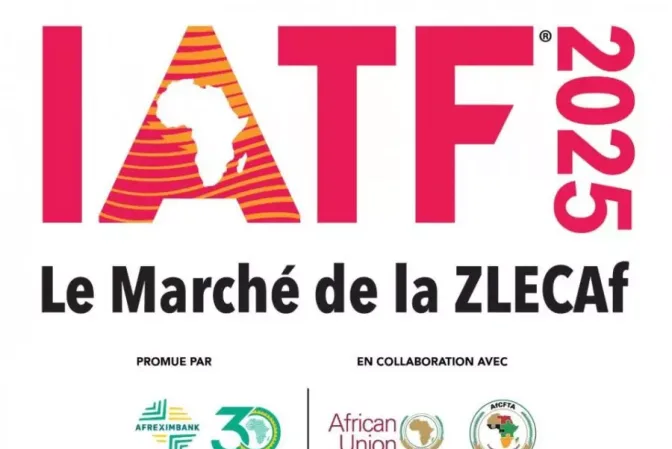
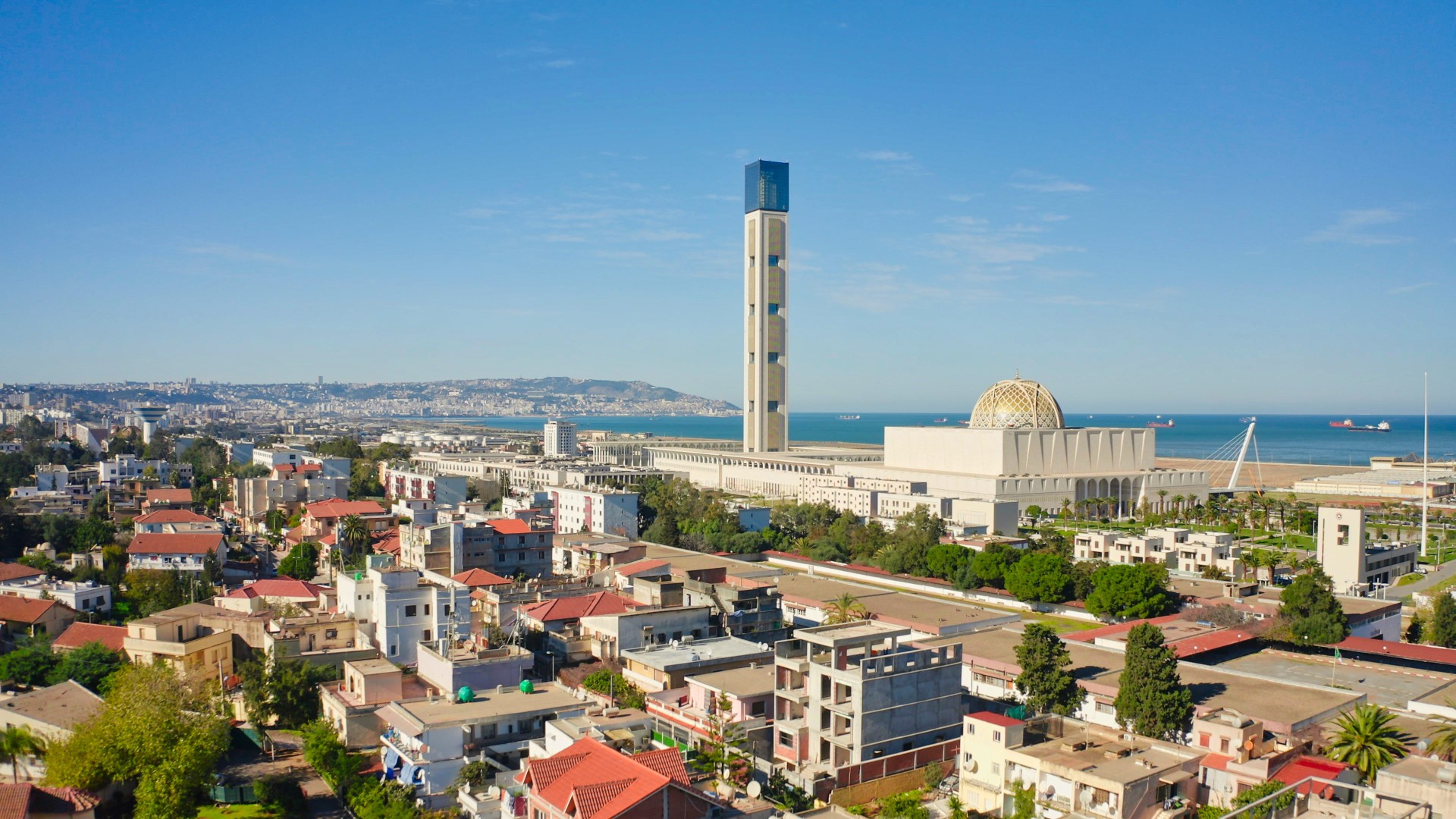
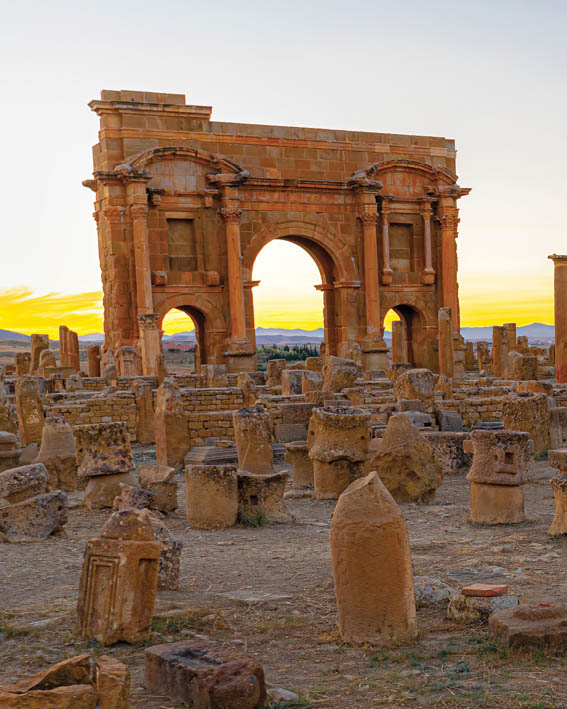
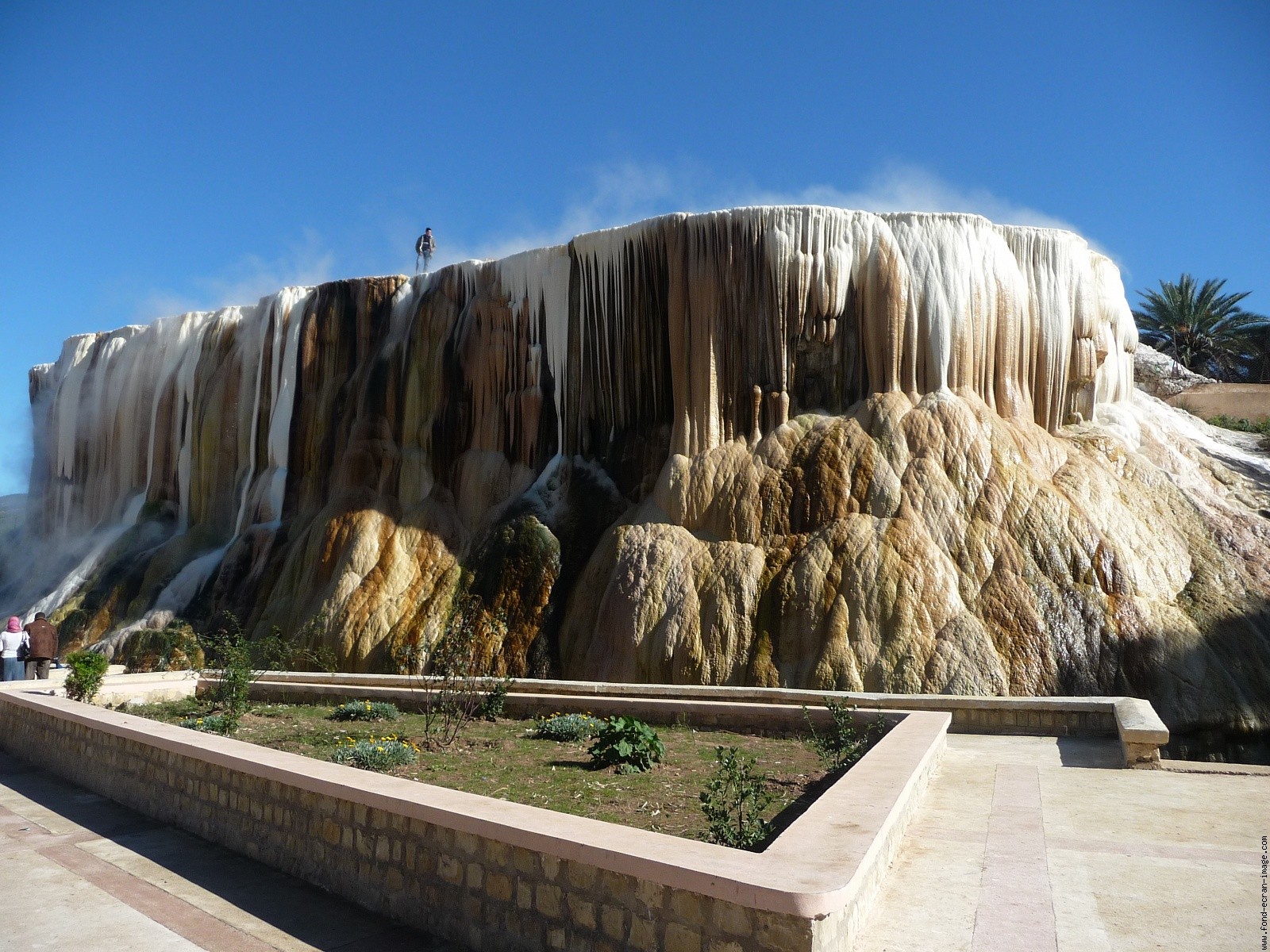
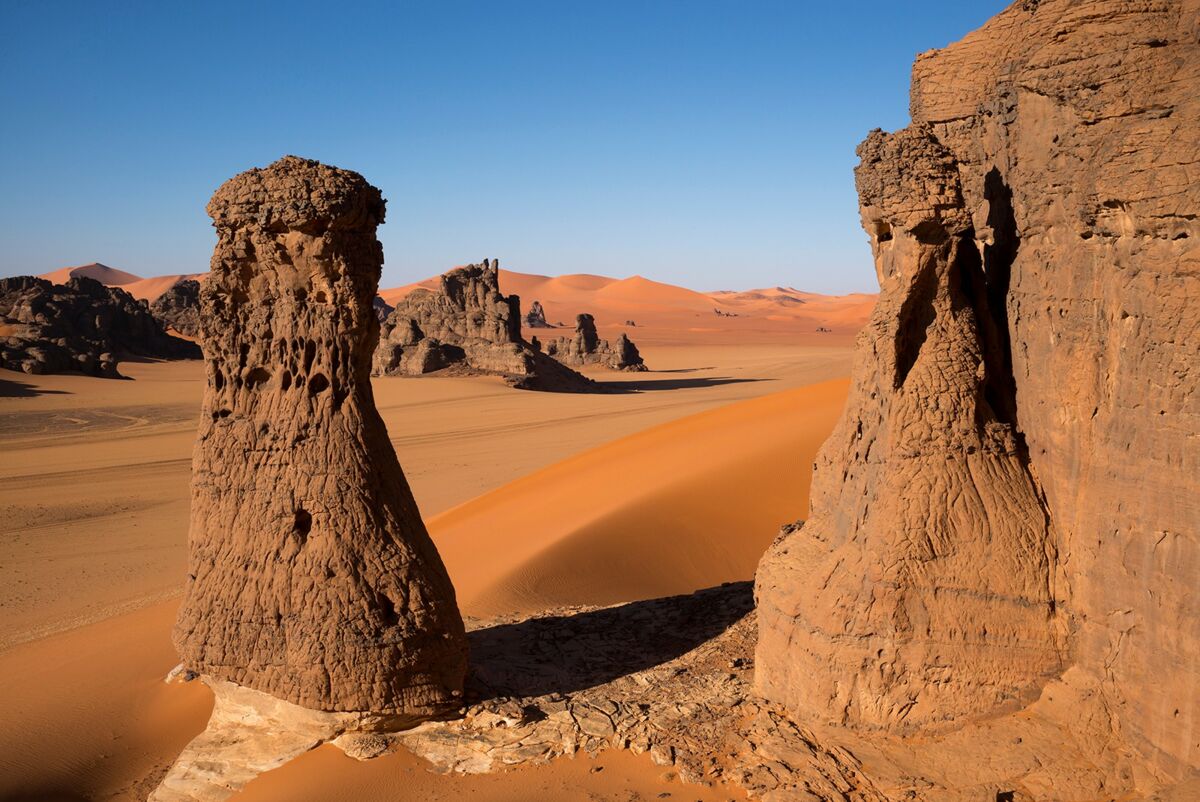
 The National Tourism Board of Algeria (ONT) is the Ministry’s instrument in charge of designing and implementing the promotion, marketing, and communication policy of Algerian tourism.
The National Tourism Board of Algeria (ONT) is the Ministry’s instrument in charge of designing and implementing the promotion, marketing, and communication policy of Algerian tourism.